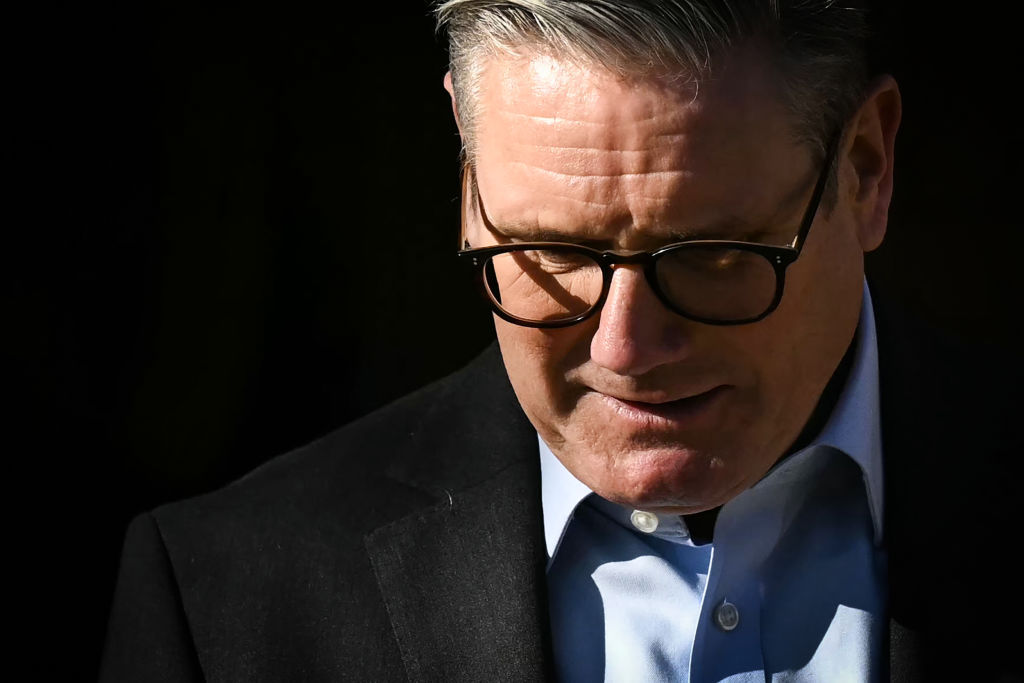Europe or America – the eternal British dilemma. Keir Starmer made clear he rejects such a binary approach in his Guildhall speech in December. But with Donald Trump threatening tariffs on the European Union, Labour’s attempts to ‘reset’ the European relationship face an almighty challenge. Yet that hasn’t deterred Nick Thomas-Symonds – Starmer’s trusted lieutenant – from giving it an almighty try.
Speaking in Brussels this morning, Thomas-Symonds gave the optimist’s case for how better EU-UK relations would benefit security, resilience and economic growth for both sides. There are ‘many, many unnecessary barriers to trade and investment’, the Cabinet Office minister argued, but now ‘there is a clear opportunity to upgrade the relationship to deliver for businesses’.
Talk of ‘red lines’ usually peppers the speeches of Thomas-Symonds. So it was striking to see him talk in much more positive tones. ‘The time for ideological division is over’, he insisted, ‘the time for ruthless pragmatism is now’. He told his audience that he will ‘fight’ to restore closer ties, five years after the UK formally left the trade bloc. He quoted Rachel Reeves’ comments last week: ‘Growth won’t come without a fight.’
It was an upbeat speech – but was it unrealistic? Thomas-Symonds says he wants an ‘ambitious’ outcome of talks, which will come into focus at an EU-UK leaders’ summit in mid-May. It is expected to be held in the UK: already the Tory press is warning of a sell-out. ‘What a time to be crawling back to the EU!’ screams the front of today’s Daily Mail.
It is not just domestic opinion that needs to be convinced. Brussels wants various concessions from No. 10, including a youth mobility scheme and further access to Britain’s fishing grounds. The former ask will be controversial given higher rates of youth unemployment across much of the bloc. The naturalisation of new arrivals to the EU also means that the profile of Europe’s youth now is very different to how it was in 2016.
On fishing, the attitude of certain EU diplomats borders, frankly, on the ludicrous. One is quoted in the Guardian as saying ‘We share security interests with the UK and the UK shares it with us… [but] the future relationship on fisheries is also very important.’ Thomas-Symonds can patiently try and point out the UK’s disproportionately large contribution to European defence. Yet even a good Europhile will struggle to convince those stubbornly unwilling to address uncomfortable questions on security.
Then, of course, there are the Americans. Trump has said the EU-US relationship amounts to an ‘atrocity’ and that tariffs on the continent ‘will definitely happen’. Various diplomats are already briefing that new Secretary of State Marco Rubio has begun spurning the EU and playing divide and rule among member countries. The President has suggested a deal could be ‘worked out’ with the UK – but such beneficence could vanish if Starmer is perceived as taking the Europeans’ side at the expense of Trump.
Keeping Brussels, Washington and Labour’s domestic audience onside will prove a stern test of Starmer’s skills. If Lord Salisbury’s policy was summarised as ‘floating lazily downstream, occasionally putting out a diplomatic boathook to avoid collisions’, then Labour’s approach is more of a frenzied scull between the Scylla and Charybdis of the two continents.








Comments